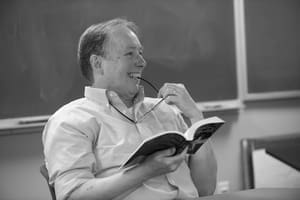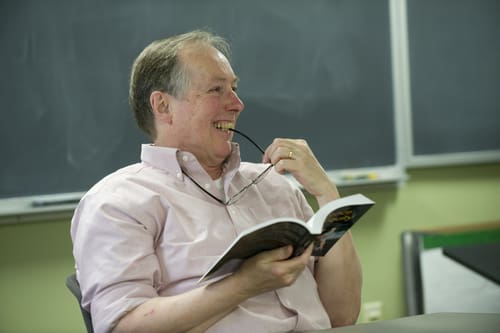
Charles L. Glenn is professor of Educational Leadership and Development and former Dean of the School of Education at Boston University, where he teaches courses in education history and comparative policy. From 1970 to 1991 he was director of urban education and equity for the Massachusetts Department of Education.
In your work, what are you creating, and what are you cultivating? (In Andy Crouch’s vernacular, what new culture are you making, and what good culture are you conserving and nurturing?)
Charles Glenn: In a sense, all my research and writing for a quarter of a century has been to understand how North American and Western European societies came to see an irreconcilable conflict between social justice and the rights of conscience, a conflict played out especially in popular education. I ask what remedies are possible and how they can be put in place, taking into account the distinctive accommodations in fifty different countries I have studied and written about.
Obviously, this is a not a mechanical matter but one of persuasion and indeed of encouraging a different way of understanding what true human flourishing requires and why that has come to be misunderstood. Working for policies that support faith-based and charter schools that serve the poor and promote such flourishing in thoughtful ways keeps me going.
Each book that I finish writing raises new questions for me and sends me into a period of intense thought and research (both historical and comparative) for the next book. Like the aging W.B. Yeats, I can truly say that
Never had I more
Excited, passionate, fantastical
Imagination, nor an ear and eye
That more expected the impossible . . .
Who is the “public” for your work—who is it for, and how does it affect the lives of those who engage with it?
Unlike most professors, my audience is not primarily other professors but policy-makers, leaders in civil society, and thoughtful citizens, especially in the evangelical and Catholic communities. And of course my undergraduate and graduate students, who challenge me constantly to make my thought more clear and persuasive.
Why do you do what you do?
I would like to think that it is for the glory of God, though I know that all sorts of other motivations are at work as well, some unworthy. There is also a desire to do something toward healing Western culture and society through education worthy of the name.
What skills, proficiencies, and virtues does this work develop in you?
I suppose the ability to sniff out the significance of historical documents and of educational policies and practices in many countries. I wish I were a profound thinker, like several of my friends; I suspect that my calling is to gather and publish the materials for their reflections.
What do you do for fun?
Spend time with my wife, seven children, and five grandchildren; drink wine and talk with friends in Europe; kayak on our lake in New Hampshire; read history; listen to Baroque music; bicycle to work; play with our dogs.
Editor’s note: By “six questions,” today, we meant “five questions.”


